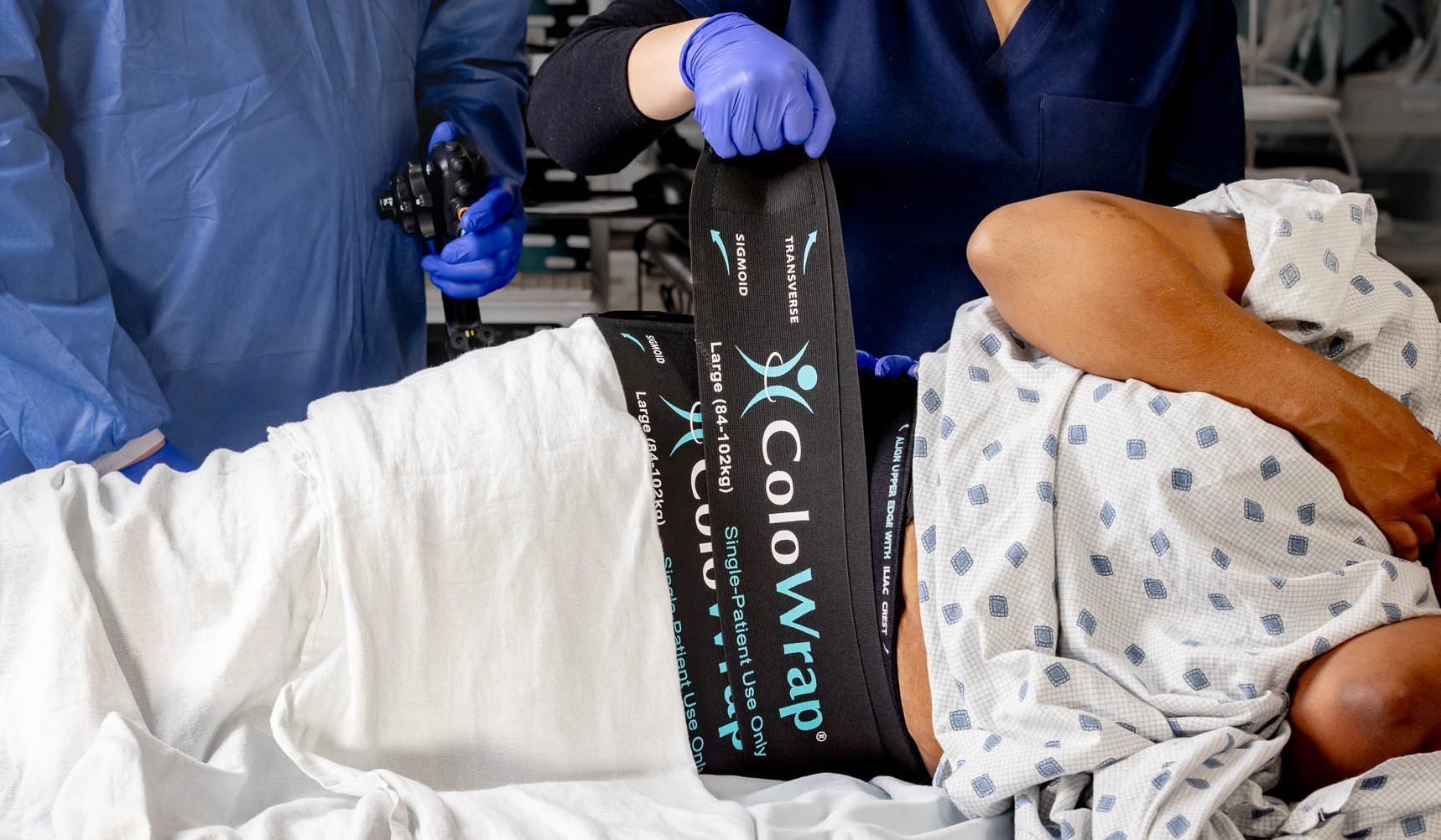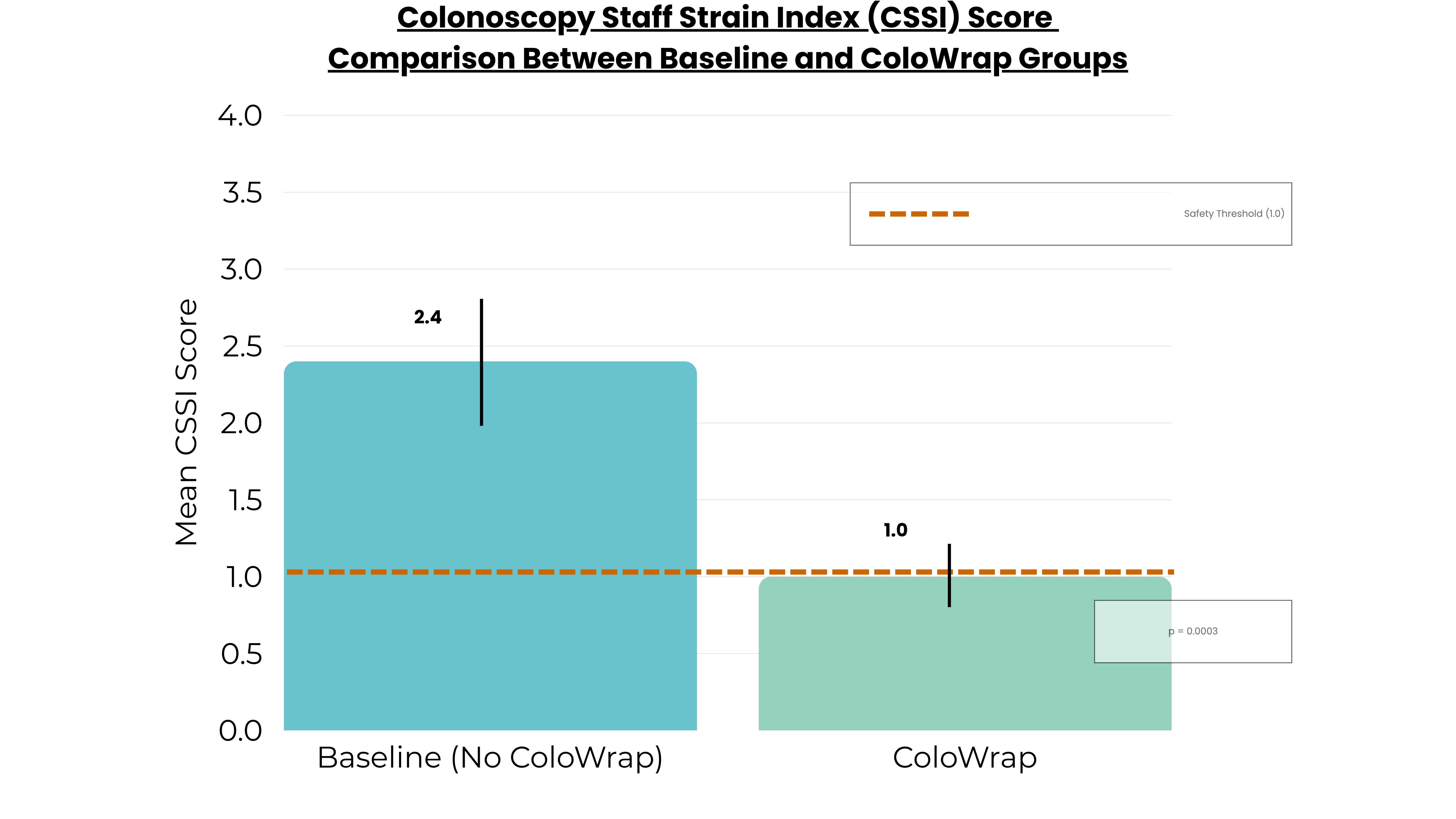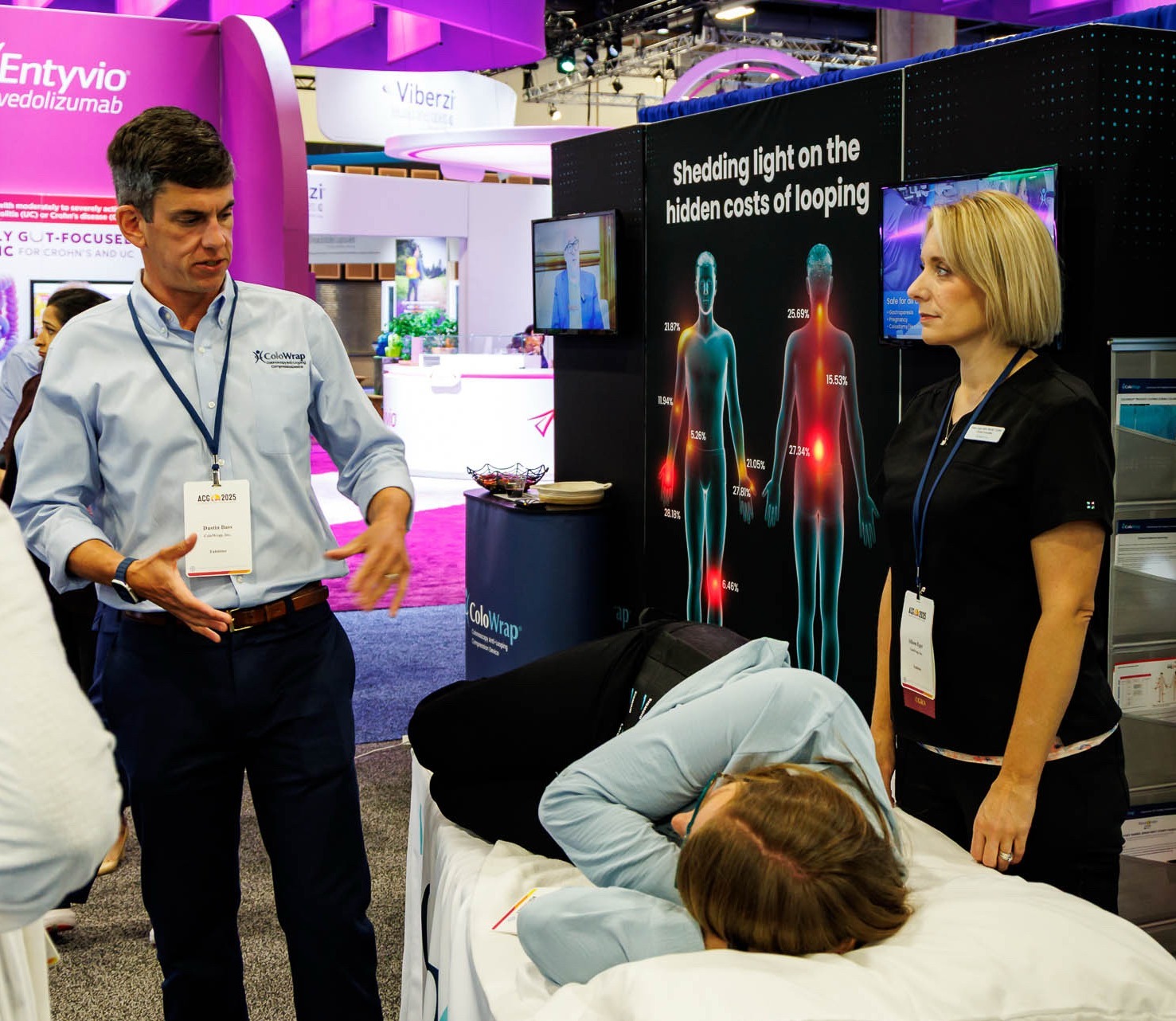ColoWrap Significantly Reduces Staff Ergonomic Strain During Colonoscopy: Award-Winning Study Presented at ACG 2025
by ColoWrap, on October 30, 2025

Helping Endoscopy Teams Work Smarter — and Safer
Endoscopy professionals know the strain that colonoscopy procedures can place on staff. Manual abdominal pressure and frequent patient repositioning are often necessary to manage colon looping — but they also expose team members to ergonomic risk and musculoskeletal (MSK) injuries.
At ColoWrap, we’re committed to protecting the people behind every procedure. That’s why we’re excited to share results from a multi-site study presented at the 2025 American College of Gastroenterology (ACG) Annual Scientific Meeting, showing that ColoWrap dramatically reduces ergonomic strain on endoscopy teams — even in higher-BMI patients.
Study Overview
Researchers from six hospital sites — including Duke University, St. Peter’s Health, Mary Rutan Hospital, Meeker Memorial Hospital, Portneuf Medical Center, and the University of Iowa Hospitals and Clinics — conducted a multi-endoscopist assessment using the validated Colonoscopy Staff Strain Index (CSSI).
Over one month, the team analyzed 388 colonoscopy procedures performed by eight endoscopists:
- Baseline (no ColoWrap): 297 procedures
- With ColoWrap: 91 procedures
The CSSI measured ergonomic risk based on factors like manual abdominal pressure, duration, and patient repositioning. Scores above 1.0 indicate elevated risk of staff injury.

CSSI Score Comparison Between Baseline and ColoWrap Groups. Mean ergonomic strain dropped from 2.4 to 1.0 (p=0.0003), below the safety threshold.
Key Findings: ColoWrap Made a Clear Difference
Across all measured parameters, ColoWrap use was associated with significant reductions in ergonomic strain:
| Metric | Baseline (No ColoWrap) | ColoWrap | p-value | % Reduction |
|---|---|---|---|---|
| Mean CSSI Score | 2.4 ± 4.3 | 1.0 ± 2.6 | 0.0003 | 58% less strain |
| Excessive Risk Procedures (CSSI > 5) | 17.0% | 7.8% | 0.02 | 54% fewer |
| Manual Pressure Usage | 42.1% | 16.4% | <0.0001 | 61% less |
| Patient Repositioning | 7.7% | 1.1% | 0.007 | 85% less |
In short, ColoWrap helped endoscopy teams achieve ergonomic safety..png?width=6144&height=3456&name=ACG%20Poster%20Presentation%202025%20(1).png)
Why This Matters
Endoscopists, endoscopy nurses, and technicians are the backbone of every GI practice, yet they face some of the highest rates of work-related MSK injuries in healthcare. By reducing the need for manual interventions, ColoWrap not only enhances procedural efficiency but also protects the health and longevity of the care team.
Notably, these improvements were seen even in higher-BMI patients, where ergonomic strain and risk is often greatest. ColoWrap’s consistent, controlled compression minimizes colon looping and reduces procedural difficulty — without compromising patient comfort.

Looking Ahead: Safer Procedures for Everyone
This research underscores a core principle of ColoWrap’s mission: innovation that protects people. By reducing strain, improving consistency, and supporting staff well-being, ColoWrap is redefining what ergonomic safety looks like in endoscopy.
The study authors recommended continued research to explore ColoWrap’s long-term effects on reducing musculoskeletal injuries among endoscopy professionals.
About ColoWrap
ColoWrap is a non-invasive abdominal compression device that stabilizes the colon and minimizes looping during colonoscopy. By maintaining consistent pressure, ColoWrap reduces the need for manual abdominal interventions, enhances procedural efficiency, and supports endoscopy team safety.
To learn more about how ColoWrap can help your team reduce strain and improve outcomes, please review ColoWrap product information.
Ready to Improve Ergonomics in Your Endoscopy Suite?
Join the growing number of facilities using ColoWrap to enhance staff safety and procedural efficiency.
Get Started

